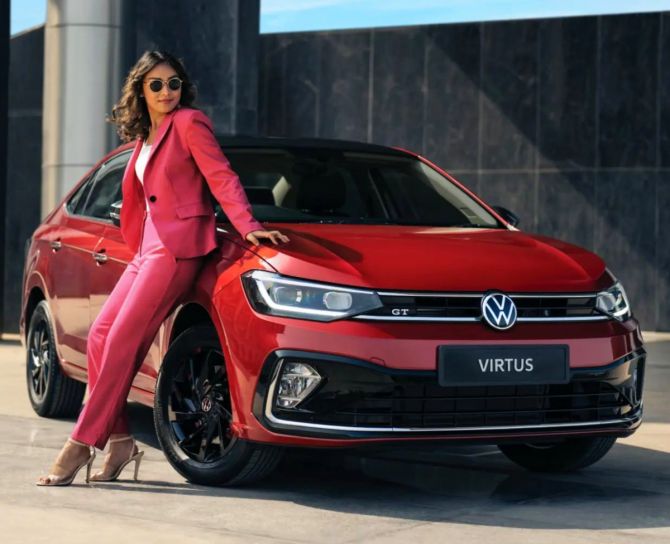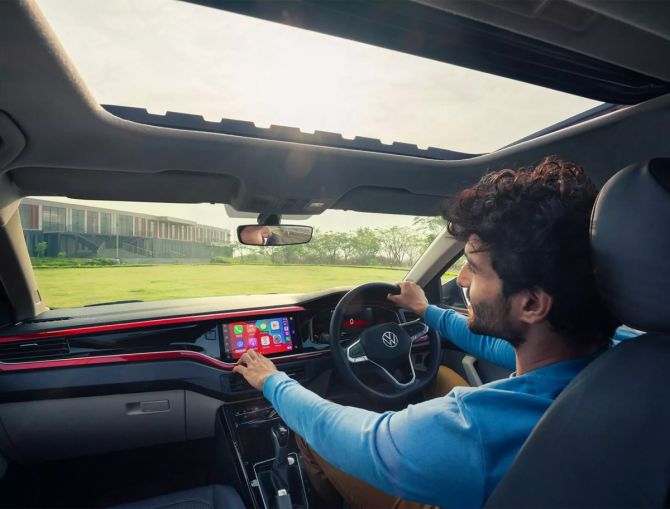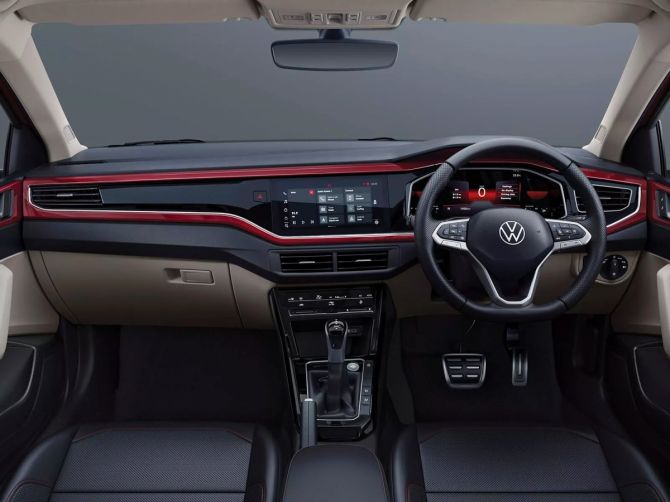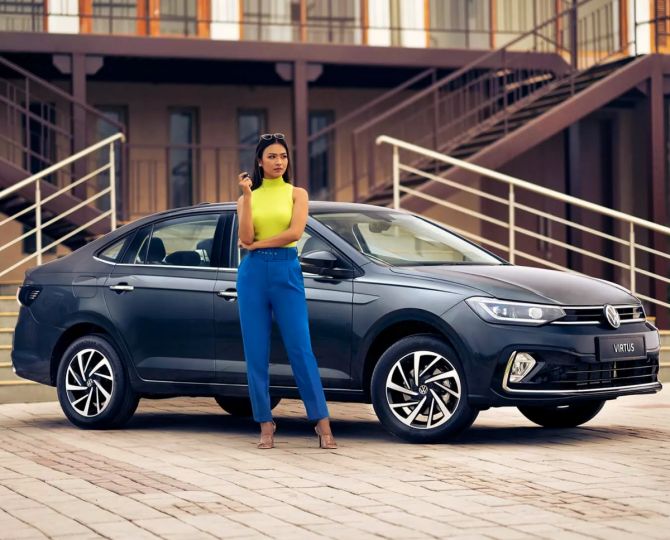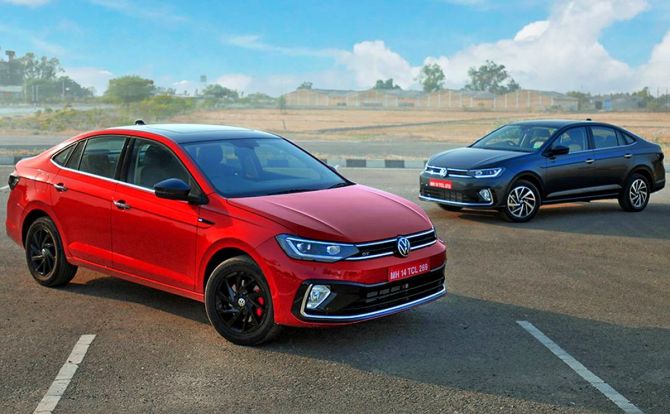Volkswagen’s Virtus bets big on the sedan segment
June 16, 2022The Virtus is indeed designed to look, act and behave like a well-built European sedan that swims in the segment between the compact sedan VW Vento and the larger Passat, says Pavan Lall.
India is no easy market for any foreign auto major.
Its consumers are picky with a variety of choices available, the incumbents have a cost advantage, and trends shift rapidly without much warning.
Just a dozen years ago, India was seen as a market predisposed to small, affordable cars such as the Tata Nano, Maruti Alto, Hyundai i20 and more.
Then the market switched gears and the SUV segment saw buyers rush to buy their cars, all the while clearly leapfrogging the sedan segment for the masses.
In fact, there is no shortage of sedans that have been yanked out of the market.
Think the Chevrolet Cruze, the Honda Accord and Civic, the Volkswagen Jetta and many others.
For Volkswagen to then launch a brand new sedan is telling.
The Latin word “virtus” means a specific virtue, with connotations that include valour and manliness.
The car is indeed designed to look, act and behave like a well-built European sedan that swims in the segment between the compact sedan VW Vento and the larger Passat, competing with the likes of the Honda City, Skoda Slavia, Hyundai Verna and the Maruti Ciaz.
With its svelte profile the Virtus is a sleek, good-looking car that stands out with a body style that is partly brand new and partly evocative of earlier larger VW sedans.
Deftly sculpted shoulder lines, chrome accents on the door handles, grille and near the windows of the car, all come together to make it take on any sedan in the segment.
The Virtus is available in two engine options — a 1.0L TSI (petrol) in 6-speed manual transmission or automatic transmission options, and a sportier (and more expensive) GT Performance Line that runs on the 1.5L TSI EVO engine hooked up to a 7-speed DSG transmission.
Inside it has all the expected fitouts of a German car.
Understated but premium plastics and fabric comprise the seats, and the dashboard is typical VW with easy-to-read functions and speedometer.
There are other features which, while premium, are getting to be fairly common among most cars nowadays, including wireless charging, ventilated seats, a large infotainment screen and so on.
When you start the Virtus it responds with a reasonably refined engine sound, well-tuned engine that springs to the road and handles the tarmac with ease and agility.
Both on slow, traffic-laden lanes as well as on roaring expressways, the Virtus performs commendably with the driver always feeling in command of adequate power whether it’s for speeding up past a slow-moving truck, braking before a bottle-neck or simply cruising within regular speeds.
The car shifts from gear to gear in automatic mode without jerkiness or the feeling of any turbo-lag, a testament to the popularity of the DSG gearbox that has been widely used in VW’s sister brand, the Audi, and its range of cars as well.
While the Virtus stands out in a segment that has recently seen a lot of action (new Honda City, Skoda Slavia), it is no secret that the mid-range segment of sedans has been sparse when it comes to choices.
The sedan has started to make a comeback and the biggest advantage of the Virtus would be its price, which thus far has not been released but if market estimates are anything to go by the range is expected between Rs 11 lakh and Rs 17 lakh (ex-showroom).
Its high level of local parts and components make it a very compelling proposition for buyers who want international design, comfort and performance with reasonable costs of ownership, maintenance and service and repair.
Sales are likely to be high when this smart sedan hits the market but the proof of the pudding will be when owners have them for a couple years and report feedback on maintenance and dealer support. And that is the eternal virtue for what makes a car successful in the long run.
Spec sheet
•Power [PS(kW) @rpm]: 150(110) @ 5,000-6,000
•Torque: [Nm@rpm]: 250 @ 1,600-3,500
•Transmission: 7-speed DSG
•Cylinders: 4
•Displacement: 1,498 cc
•Kerb weight: 1,275 kg
•Price: Rs 11.21 lakh to Rs 17.91 lakh
Feature Presentation: Rajesh Alva/Rediff.com
Source: Read Full Article
